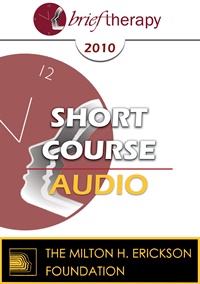
- Average Rating:
- Not yet rated
- Topic Areas:
- Hypnosis | Short Courses | Therapist Development | Brief Therapy | Supervision | Utilization
- Categories:
- Brief Therapy Conference | Brief Therapy Conference 2010
- Faculty:
- Dale Bertram, PhD | Mike Rankin, MA
- Duration:
- 1:19:17
- Format:
- Audio Only
- Original Program Date:
- Dec 09, 2010
- Short Description:
- By utilizing hypnosis in supervision, supervisors can help supervisees tap into their resources and grow in confidence as therapists. This process of utilizing hypnosis in supervision can be a useful method to meet the standards for achieving the results that supervisors, supervisees, and clients seek. This process can be a very effective method in achieving coherence, strengthening the ability to be accountable, while helping form a clear map for directing supervision.
- Price:
- $15.00 - Base Price
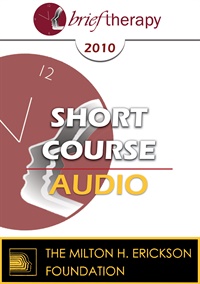
- Average Rating:
- Not yet rated
- Topic Areas:
- Short Courses | Brief Therapy | Therapist Development | Art and Creativity
- Categories:
- Brief Therapy Conference | Brief Therapy Conference 2010
- Faculty:
- Leslie Nadler | Steven Geschwer
- Duration:
- 1:16:13
- Format:
- Audio Only
- Original Program Date:
- Dec 09, 2010
- Short Description:
- This workshop will demonstrate an integrative therapeutic model that can aid therapists in rapidly identifying and modifying their own early maladaptive schemas. These schemas operate as selective filters that limit the therapist’s ability to respond compassionately and effectively to certain material presented by their clients. With Leslie Nadler and Steven Geschwer.
- Price:
- $15.00 - Base Price
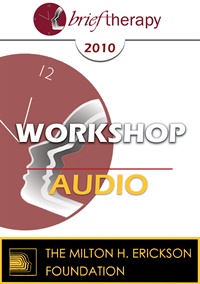
- Average Rating:
- Not yet rated
- Topic Areas:
- Workshops | Therapist Development
- Categories:
- Brief Therapy Conference | Brief Therapy Conference 2010
- Faculty:
- Casey Truffo, M.S.,M.F.T.
- Duration:
- 2:49:05
- Format:
- Audio Only
- Original Program Date:
- Dec 09, 2010
- Short Description:
- Feel uncomfortable about marketing your private practice? Or maybe you tried marketing with disappointing results. You are not alone. This presentation offers practical, step-by-step instructions to building an effective, ethical and low-cost marketing plan to attract self-paying clients and addresses specific methods of increasing your marketing confidence.
- Price:
- $15.00 - Base Price
Tags: Therapist Development
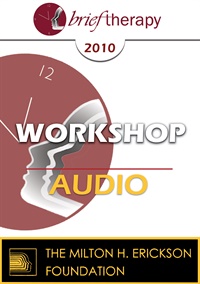
- Average Rating:
- Not yet rated
- Topic Areas:
- Workshops | Experiential Therapy | Brief Therapy | Therapist Development
- Categories:
- Brief Therapy Conference | Brief Therapy Conference 2010
- Faculty:
- Lilian Borges, MA, LPC
- Duration:
- 2:19:53
- Format:
- Audio Only
- Original Program Date:
- Dec 09, 2010
- Short Description:
- In this workshop we will learn how to provide effective experiential treatment rather than offering didactic information or treatment protocols. We can enter the patient’s phenomenological world -- even with the most difficult patients. Lilian Borges will demonstrate an integrative approach that is brief, experiential, phenomenological, and effective. Therapist sculpting allows the therapist attune to the client’s experience; empathize with them; help the client to disengage from the problem; focus on what is important; and help the client discover new possibilities.
- Price:
- $15.00 - Base Price
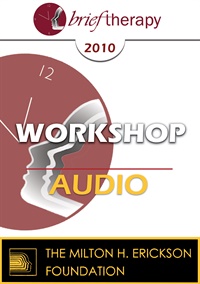
- Average Rating:
- Not yet rated
- Topic Areas:
- Workshops | Research | Therapist Development
- Categories:
- Brief Therapy Conference | Brief Therapy Conference 2010
- Faculty:
- Scott Miller, PhD
- Duration:
- 2:37:10
- Format:
- Audio Only
- Original Program Date:
- Dec 10, 2010
- Short Description:
- Without exception, developers and devotees to particular methods claim superiority in conceptualization and outcome of their chosen approach. Meanwhile, governmental bodies, professional organizations, and third party payers are assembling, mandating adherence, and in some instances limiting payment to lists of treatments considered “evidence-based. So, “what works?” The presenter will identify core factors responsible for therapeutic success regardless of theoretical orientation or psychiatric diagnosis. The research on “what works” will be carefully translated into practical, common sense, and empirically supported therapeutic skills that can be used for the efficient and effective resolution of problems clients bring to treatment.
- Price:
- $15.00 - Base Price
Tags: Therapist Development

- Average Rating:
- Not yet rated
- Topic Areas:
- Workshops | Brief Therapy | Self-Care | Therapist Development
- Categories:
- Brief Therapy Conference | Brief Therapy Conference 2010
- Faculty:
- John C. Norcross, PhD
- Duration:
- 2:11:25
- Format:
- Audio Only
- Original Program Date:
- Dec 10, 2010
- Short Description:
- What about you – the therapist? Conducting brief treatment places additional and special burdens on the person of the therapist. This workshop puts the Socratic dicta of “know thyself” and “heal thyself” into practice. We shall focus on 12 selfcare strategies that are clinician-recommended, research-based, and practitioner-tested. Come join us for focused lectures, copious handouts, group demonstrations, thought experiments, and interactive discussions.
- Price:
- $15.00 - Base Price
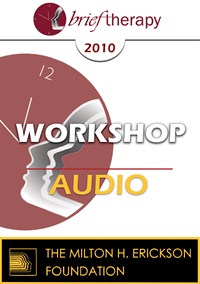
- Average Rating:
- Not yet rated
- Topic Areas:
- Workshops | Therapist Development
- Categories:
- Brief Therapy Conference | Brief Therapy Conference 2010
- Faculty:
- Scott Miller, PhD
- Duration:
- 2:24:21
- Format:
- Audio Only
- Original Program Date:
- Dec 10, 2010
- Short Description:
- Thanks to a number of recent studies, there is now solid empirical evidence for what distinguishes highly effective from average therapists. In this workshop, participants will learn three specific strategies that separate the great from the good. Participants will also learn a simple method for measuring success rates that can be used to develop a profile of their most and least effective moments in therapy—what works and what doesn’t. Not only will attendees get a far more exact idea of their clinical strengths and weaknesses and how to use the findings to improve their own practice, but they will also come away with concrete tools that will immediately boost clinical abilities and effectiveness.
- Price:
- $15.00 - Base Price
Tags: Therapist Development
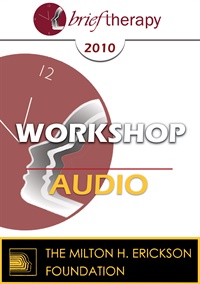
- Average Rating:
- Not yet rated
- Topic Areas:
- Workshops | Therapist Development
- Categories:
- Brief Therapy Conference | Brief Therapy Conference 2010
- Faculty:
- James Prochaska, PhD
- Duration:
- 2:36:32
- Format:
- Audio Only
- Original Program Date:
- Dec 10, 2010
- Short Description:
- Helping patients and populations at each stage of change includes strategies for reaching and retaining more patients, reducing resistance and maximizing impacts while minimizing demands on patients and providers. Special emphasis is on growing opportunities for stage based theorogists; including mental health specialists integrated in primary care practices.
- Price:
- $15.00 - Base Price
Tags: Therapist Development
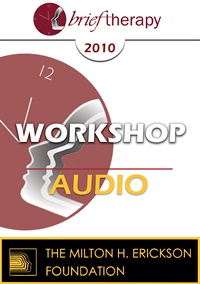
- Average Rating:
- Not yet rated
- Topic Areas:
- Psychotherapy | Workshops | Therapist Development
- Categories:
- Brief Therapy Conference | Brief Therapy Conference 2010
- Faculty:
- Casey Truffo, M.S.,M.F.T.
- Duration:
- 2:46:51
- Format:
- Audio Only
- Original Program Date:
- Dec 12, 2010
- Short Description:
- The current model of delivering psychotherapy services – one fee for one session—may not sustain us as we move further into the 21st century. One answer is a “multiple streams of therapy income” business - to create passive income for therapists. This workshop will discuss the steps to creating your first information product.
- Price:
- $15.00 - Base Price
Tags: Therapist Development
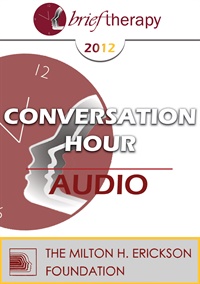
- Average Rating:
- Not yet rated
- Topic Areas:
- Conversation Hours | Therapist Development
- Categories:
- Brief Therapy Conference | Brief Therapy Conference 2012
- Faculty:
- Jon Carlson
- Duration:
- 59:24
- Format:
- Audio Only
- Original Program Date:
- Dec 07, 2012
- Short Description:
- BT12 Conversation Hour 03 - Beyond the 50-Minute Hour: What Therapists Do Outside of the Clinic - Jon Carlson, PsyD, EdD, ABPP Educational Objectives: Learn the philosophies of various practitioners and theorists.
- Price:
- $15.00 - Base Price
Please wait ...

